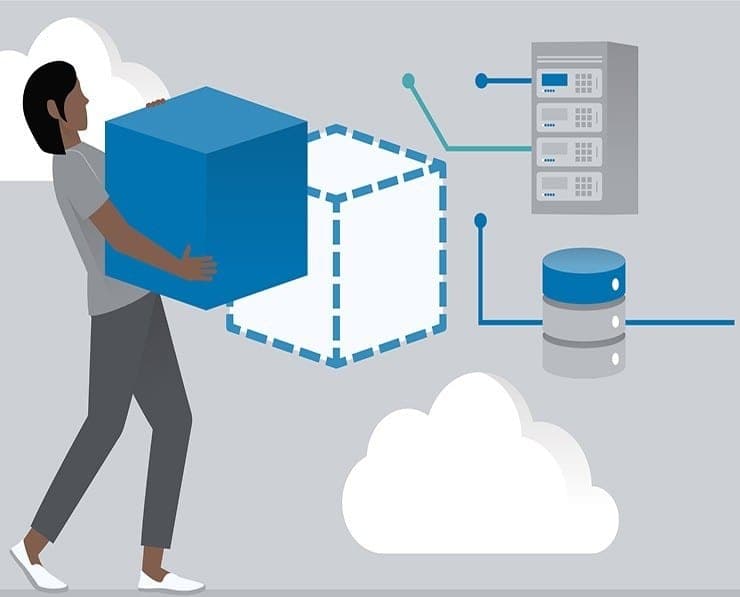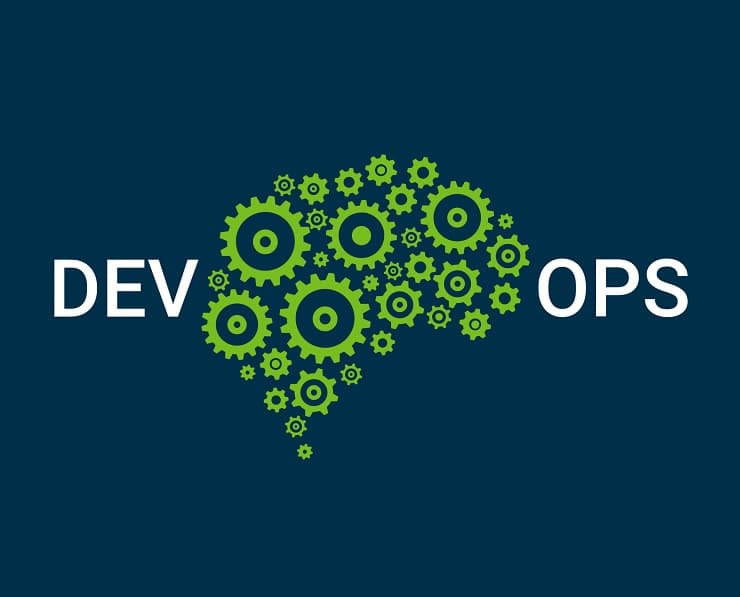Student Feedback
AWS Certified Security - Specialty: AWS Certified Security - Specialty (SCS-C01) Certification Video Training Course Outline
Getting started with the course
Domain 1 - Incident Response
Domain 2 - Logging & Monitoring
Getting started with the course
AWS Certified Security - Specialty: AWS Certified Security - Specialty (SCS-C01) Certification Video Training Course Info
AWS Certified Security Specialty Practice Exams – Master AWS Security Concepts
Get ready for your SCS-C02 exam with 130 brand-new, high-quality practice questions, each crafted from scratch and paired with detailed explanations!
What You Will Learn From This Course
By taking this course, you will gain comprehensive knowledge and hands-on understanding of AWS security services, best practices, and exam-focused strategies. You will learn how to identify and mitigate security risks, implement automated security responses, and effectively secure AWS workloads. This course equips you with the knowledge to confidently tackle the SCS-C02 exam and demonstrates practical skills that are directly applicable to real-world AWS environments.
Throughout the course, you will develop expertise in configuring AWS security services such as Security Hub, GuardDuty, IAM, KMS, CloudTrail, and Amazon VPC security controls. You will also master techniques to monitor, audit, and respond to threats automatically, enhancing your capability to maintain a secure and compliant AWS infrastructure. Additionally, the course emphasizes exam-style scenarios and detailed explanations to prepare you for complex questions you may encounter on the SCS-C02 exam.
Learning Objectives
Upon completion of this course, you will be able to:
• Understand the core AWS security services and their real-world applications.
• Analyze AWS security risks and implement mitigation strategies effectively.
• Monitor and respond to security events using AWS native tools such as Security Hub, GuardDuty, and EventBridge.
• Implement identity and access management policies to secure AWS resources using IAM, roles, and policies.
• Configure and manage encryption solutions with AWS Key Management Service (KMS) and AWS Certificate Manager (ACM).
• Audit and monitor AWS resources using AWS CloudTrail, Config, and logging services.
• Design secure networking architectures, including VPC, Security Groups, and Network ACLs.
• Apply security best practices across all AWS domains to ensure compliance and protect workloads.
• Solve real-world AWS security scenarios using automated responses and serverless solutions like Lambda.
• Gain confidence in answering SCS-C02 exam-style questions with detailed explanations and referenced documentation.
Target Audience
This course is designed for a wide range of professionals who are looking to deepen their knowledge of AWS security and achieve the AWS Certified Security Specialty certification. The target audience includes:
• Cloud engineers and architects seeking specialized security knowledge in AWS.
• Security administrators and operations teams are responsible for monitoring and securing AWS environments.
• IT professionals aiming to validate their skills in cloud security and enhance career prospects.
• Students preparing for the AWS Certified Security Specialty SCS-C02 exam.
• Anyone interested in gaining practical, hands-on expertise in AWS security services and automated threat response.
• Professionals who want to strengthen their understanding of AWS compliance standards, encryption, and network security.
• Security consultants and analysts looking for practical solutions to real-world security challenges in AWS.
Requirements
To gain the maximum benefit from this course, participants should have access to an AWS account and a basic understanding of AWS services. Having a test or sandbox environment to practice hands-on exercises will enhance learning. A laptop or desktop computer with internet access is required to follow along with the course examples and simulations. The course is fully compatible with mobile devices through the Udemy app, enabling learning on the go.
Familiarity with general cloud computing concepts, basic networking, and an understanding of operating system principles will help learners absorb content more efficiently. Additionally, a willingness to explore and experiment with AWS security services will greatly enhance the practical learning experience.
Prerequisites
While no advanced prerequisites are mandatory, having foundational knowledge in the following areas will be beneficial:
• Basic understanding of AWS core services such as EC2, S3, and VPC.
• Familiarity with networking concepts, including subnets, IP addressing, routing, and firewalls.
• Basic knowledge of security principles such as encryption, authentication, authorization, and auditing.
• Understanding of identity and access management concepts, including roles, policies, and permissions.
• Prior experience with cloud computing or any public cloud environment is helpful but not required.
• Familiarity with monitoring and logging concepts can enhance comprehension of automated security responses.
Course Overview
This course has been designed to simulate the SCS-C02 exam environment, offering realistic practice questions that mirror the exam’s structure and difficulty. Each question is written from scratch and includes detailed explanations, AWS documentation references, and “exam alerts” highlighting critical concepts to remember. By working through these questions, learners can identify knowledge gaps and reinforce their understanding of AWS security services.
In addition to exam preparation, this course focuses on practical applications of AWS security services. Learners will explore how to configure Security Hub, automate responses using EventBridge and Lambda, and analyze GuardDuty findings to detect and mitigate threats in real time. The course also demonstrates effective use of AWS CloudTrail, Config, and other auditing tools to maintain visibility and compliance across AWS accounts.
Participants will gain hands-on experience with security policies, network controls, and encryption mechanisms. These practical skills are designed not only to help learners pass the exam but also to implement secure and compliant AWS solutions in real-world environments.
Learning Approach
The course follows a structured, progressive learning approach, starting with foundational security concepts and advancing toward complex exam scenarios. Each section emphasizes practical knowledge, reinforced with exam-style questions and detailed explanations. By consistently practicing and reviewing these questions, learners develop both theoretical understanding and practical expertise in securing AWS workloads.
The interactive approach ensures that learners are not just memorizing concepts but also understanding how to apply them in realistic situations. This methodology enhances retention and builds confidence for the SCS-C02 exam. Learners are encouraged to retake practice exams multiple times to track their progress and reinforce learning.
Why Choose This Course
This course stands out for its combination of high-quality, original questions, detailed explanations, and practical guidance from experienced instructors. Stephane Maarek and Abhishek Singh bring unparalleled expertise in AWS certifications, ensuring that learners receive reliable, up-to-date content aligned with current exam objectives.
By choosing this course, learners gain access to a continually growing question bank, comprehensive explanations, and instructor support to clarify doubts. The course also offers flexibility for mobile learning and provides a 30-day money-back guarantee for added confidence.
Completing this course not only prepares learners for the SCS-C02 exam but also equips them with practical security skills that are immediately applicable in professional AWS environments. Participants can confidently implement automated security responses, audit and monitor resources, and follow best practices to maintain compliance and protect workloads.
Course Modules / Sections
This course is designed to provide a comprehensive and structured approach to mastering AWS security concepts and preparing for the AWS Certified Security Specialty SCS-C02 exam. The course modules are organized to gradually build your knowledge and practical skills, starting from foundational concepts and advancing to complex real-world security scenarios. Each module contains multiple lessons with a focus on exam-style practice, hands-on application, and in-depth explanations.
The course begins with an introduction to AWS security, highlighting the shared responsibility model and the importance of securing cloud workloads. Learners will gain a strong foundation in AWS identity and access management, understanding roles, policies, and permissions, and how to implement least privilege access effectively.
Following this, the course delves into network security and monitoring, covering VPC security controls, security groups, network ACLs, and advanced networking concepts for protecting AWS resources. Learners will explore how to analyze traffic patterns, detect anomalies, and respond to potential threats using AWS-native monitoring tools.
The next module focuses on threat detection and incident response, guiding learners on implementing services such as Amazon GuardDuty, AWS Security Hub, AWS Config, and CloudTrail. These lessons emphasize automated security responses, alerting mechanisms, and real-time monitoring to ensure a proactive security posture.
Data protection is another critical module, which addresses encryption, key management, and securing sensitive information. Learners will study AWS Key Management Service (KMS), AWS Certificate Manager (ACM), and best practices for protecting data at rest and in transit.
The final modules consolidate the learning experience by providing extensive practice exams, scenario-based questions, and in-depth explanations. Each practice question simulates the exam environment and challenges learners to apply security knowledge in practical situations. These sections are designed to reinforce learning, identify knowledge gaps, and improve exam readiness.
Key Topics Covered
This course covers the key topics that are essential for both passing the SCS-C02 exam and implementing AWS security best practices effectively. The curriculum is aligned with the AWS Certified Security Specialty exam domains, ensuring that learners gain relevant knowledge and practical skills.
Identity and Access Management is covered extensively, including IAM roles, users, groups, and policies. Learners will understand how to enforce the principle of least privilege, manage temporary credentials, and implement cross-account access securely. Advanced IAM features, such as IAM Access Analyzer and policy simulations, are also addressed.
Network security topics include securing VPC environments using security groups, network ACLs, and VPC flow logs. Learners will explore strategies for isolating resources, controlling traffic, and monitoring network activity for potential security incidents. The course also covers private links, transit gateways, and VPN configurations to secure hybrid environments.
Monitoring and threat detection are critical areas covered in this course. Amazon GuardDuty is explored in depth, teaching learners how to detect malicious activity, unauthorized access, and data exfiltration attempts. AWS Security Hub is covered as a centralized platform for aggregating security findings and automating responses. The course also explains how to use EventBridge and Lambda to automate threat remediation.
Data protection and encryption are key topics that cover both in-transit and at-rest data security. Learners will study KMS for key management, encryption best practices for S3, EBS, RDS, and other AWS storage services, as well as AWS Certificate Manager for SSL/TLS certificates. Techniques for securely managing cryptographic keys and rotating them regularly are also discussed.
Compliance and auditing are important aspects of AWS security. The course teaches how to use AWS CloudTrail, AWS Config, and other logging services to track changes, monitor compliance, and generate audit reports. Learners will understand how to implement continuous monitoring and ensure that AWS environments adhere to industry standards and regulations.
The course also emphasizes practical scenario-based learning, including automated responses to security incidents, security orchestration, and real-world case studies. Learners gain experience in using Lambda for automated remediation, integrating services for end-to-end security automation, and designing resilient and compliant cloud architectures.
Teaching Methodology
The teaching methodology of this course is designed to combine conceptual understanding with hands-on practice and exam-focused preparation. The course uses a structured, layered approach that ensures learners first grasp core concepts, then apply them in practical scenarios, and finally reinforce knowledge through repeated practice and review.
Each module begins with an introduction to the key concepts, providing context and explaining why these concepts are critical for both the AWS Certified Security Specialty exam and real-world AWS security. Lessons are presented using clear, step-by-step explanations, with examples and demonstrations of AWS services in action.
Hands-on exercises are integrated throughout the course, allowing learners to practice implementing security controls, monitoring tools, and automated responses in their own AWS environments. These exercises simulate real-world scenarios and help learners develop the practical skills required to manage secure cloud architectures.
The course also emphasizes scenario-based problem solving, where learners are presented with realistic security challenges and guided through the process of identifying threats, selecting appropriate AWS services, and implementing effective solutions. This approach builds critical thinking and analytical skills, which are essential for both the exam and professional practice.
Regular quizzes and knowledge checks are embedded within each module to reinforce learning and assess understanding. Each question comes with detailed explanations, highlighting key concepts, best practices, and common pitfalls. These assessments help learners gauge their progress and identify areas requiring further review.
Instructor-led explanations, demonstrations, and insights are used throughout the course to provide context, highlight real-world applications, and clarify complex concepts. Both Stephane Maarek and Abhishek Singh bring extensive experience and teaching expertise, ensuring learners receive accurate, up-to-date guidance.
The course encourages iterative learning, where learners revisit modules, practice exercises, and review explanations multiple times. This repetition reinforces retention, deepens understanding, and increases confidence in applying AWS security principles and answering exam-style questions.
Assessment & Evaluation
Assessment and evaluation in this course are designed to provide continuous feedback and help learners track their progress toward mastery of AWS security concepts and SCS-C02 exam readiness. Multiple forms of assessment are incorporated to ensure comprehensive evaluation, including practice exams, scenario-based exercises, and self-assessment quizzes.
Practice exams are a core component of the assessment strategy. These exams simulate the actual SCS-C02 exam environment, providing realistic question formats, difficulty levels, and timing. Each practice exam is accompanied by detailed explanations, references to AWS documentation, and guidance on best practices. Learners can retake these exams multiple times to reinforce knowledge and track improvement.
Scenario-based exercises assess learners’ ability to apply security concepts in practical, real-world situations. These exercises involve analyzing AWS security events, designing automated remediation workflows, and implementing policies to mitigate threats. Learners are evaluated based on their ability to select appropriate AWS services, configure security controls correctly, and develop effective solutions.
Quizzes are included throughout the course to provide immediate feedback on understanding of key concepts. Each quiz question is designed to reinforce learning, highlight important details, and challenge learners to think critically. Detailed explanations accompany each answer, ensuring learners understand the rationale behind correct and incorrect options.
Evaluation also includes monitoring engagement with hands-on labs and exercises. Learners are encouraged to complete all labs, replicate scenarios in their AWS accounts, and document their implementations. This practical experience is essential for developing the skills required to pass the SCS-C02 exam and apply security best practices professionally.
Progress tracking tools are incorporated to allow learners to monitor completion of modules, quizzes, and exercises. This continuous feedback ensures learners can identify knowledge gaps, prioritize areas for review, and maintain steady progress toward mastery.
The assessment approach is iterative and cumulative, meaning that each exercise, quiz, and practice exam builds upon previous knowledge. This methodology ensures a deep, comprehensive understanding of AWS security principles and prepares learners for complex, multifaceted exam questions.
In addition to formal assessments, learners receive support and guidance from instructors. Questions submitted through the course platform are answered with detailed explanations, helping learners overcome obstacles, clarify doubts, and strengthen their understanding of AWS security concepts.
By completing the course, learners not only gain readiness for the AWS Certified Security Specialty SCS-C02 exam but also acquire practical skills to secure AWS workloads, implement automated responses, monitor threats effectively, and maintain compliance in real-world environments. The combination of conceptual learning, hands-on exercises, scenario-based practice, and continuous assessment ensures comprehensive preparation and professional development.
This course emphasizes mastery over memorization, encouraging learners to internalize security principles, understand underlying concepts, and apply knowledge in dynamic AWS environments. The structured modules, key topics, teaching methodology, and robust assessment framework provide a holistic learning experience that bridges the gap between theoretical knowledge and practical expertise.
Benefits of the Course
This course offers multiple benefits for anyone preparing for the AWS Certified Security Specialty SCS-C02 exam, as well as professionals seeking to strengthen their AWS security expertise. The course provides a structured, comprehensive approach that covers all key exam domains while also offering practical, hands-on experience with AWS security services.
One of the primary benefits is the development of a deep understanding of AWS security principles. Learners gain knowledge of identity and access management, network security, threat detection, incident response, data protection, and compliance. This knowledge is essential for securing cloud workloads and for demonstrating expertise in professional settings.
Another benefit is the practical experience offered throughout the course. Learners are exposed to scenario-based exercises, hands-on labs, and practice questions that simulate real-world security challenges. This practical exposure ensures that learners can not only answer exam questions effectively but also apply the same concepts to secure AWS environments in professional scenarios.
The course also emphasizes automated security responses using AWS-native services such as Lambda, EventBridge, GuardDuty, and Security Hub. By learning to automate monitoring, alerting, and remediation processes, learners can efficiently protect resources, reduce human error, and implement scalable security solutions.
Exam readiness is a key benefit of this course. The practice exams are designed to mimic the real SCS-C02 exam in terms of style, structure, and difficulty. Detailed explanations for each question ensure learners understand the reasoning behind correct and incorrect answers. This approach boosts confidence, reduces exam anxiety, and maximizes the likelihood of passing the certification exam on the first attempt.
The course also supports continuous improvement and lifelong learning. The question bank is regularly updated with new scenarios, and learners can retake exams multiple times to reinforce knowledge. In addition, instructor support is available to answer questions, clarify concepts, and provide guidance, creating an interactive and engaging learning experience.
Learners also benefit from improved career opportunities. Completing the AWS Certified Security Specialty course demonstrates advanced cloud security expertise, which is highly valued in roles such as cloud security engineer, solutions architect, DevOps engineer, security analyst, and cloud consultant. The certification validates both theoretical knowledge and practical ability, giving learners a competitive edge in the job market.
Course Duration
The course is structured to provide a flexible and comprehensive learning experience. While the total duration can vary depending on the learner's pace, it is designed to be completed in approximately 20 to 25 hours of focused study. This duration includes time for reviewing lessons, practicing hands-on exercises, and taking multiple practice exams.
The modules are divided into manageable sections, allowing learners to progress incrementally. Each lesson is designed to be concise yet thorough, covering key concepts while providing real-world examples and practical exercises. This modular structure ensures that learners can study efficiently, reinforcing learning at each step before moving to more advanced topics.
For learners who wish to maximize their preparation, the course also encourages repeated engagement with practice exams and scenario-based exercises. Retaking exams, reviewing explanations, and practicing remediation scenarios ensure knowledge retention and confidence in applying security principles under real-world conditions.
Flexibility is a major advantage of this course duration. Learners can adapt their study schedules according to their availability, whether they prefer intensive study sessions or spaced learning over several weeks. The course is mobile-compatible, enabling learning anytime and anywhere, which is particularly useful for professionals balancing work commitments with exam preparation.
Tools & Resources Required
To make the most of this course, learners need access to a few essential tools and resources. A personal AWS account is required to practice hands-on exercises and implement security scenarios. While a free-tier AWS account is sufficient for many labs, some exercises may require additional resources or configurations.
A computer or laptop with internet access is necessary to follow along with the course materials, access the AWS Management Console, and complete exercises. The course is also compatible with mobile devices through the Udemy app, allowing learners to watch lessons, review explanations, and complete quizzes on the go.
Familiarity with the AWS Management Console and basic navigation of AWS services such as EC2, S3, VPC, IAM, and Lambda will help learners follow hands-on exercises more effectively. While advanced experience is not required, a willingness to explore and experiment with AWS security services is essential for practical learning.
Learners will also benefit from additional resources such as AWS documentation, whitepapers, and best practice guides, which are referenced throughout the course to provide authoritative guidance and a deeper understanding of security concepts. These resources complement the course content and serve as valuable references for both exam preparation and professional practice.
A notepad or digital document for taking notes during lessons is recommended to track important concepts, best practices, and configuration steps. Keeping notes can help learners consolidate understanding and serve as a quick reference during practice exams or real-world AWS tasks.
Finally, learners are encouraged to maintain a structured study schedule and allocate dedicated time for hands-on practice, quizzes, and review sessions. Combining these tools and resources with the course content ensures a comprehensive, effective, and engaging learning experience that prepares learners to succeed in both the SCS-C02 exam and professional AWS security roles.
Conclusion
His course series emphasizes the benefits of completing the AWS Certified Security Specialty SCS-C02 practice exams course, highlighting the practical and professional value it provides. By following the structured course modules, learners gain a deep understanding of AWS security services, hands-on experience with real-world scenarios, and the confidence to tackle complex exam questions.
The course duration is designed to offer flexibility while ensuring comprehensive coverage of all key topics. Learners can pace their study according to their schedule, making it accessible for both professionals and students. The structured lessons, scenario-based exercises, and repeated practice exams reinforce learning and build mastery over critical security concepts.
Access to the right tools and resources is essential for a successful learning experience. A personal AWS account, an internet-connected device, familiarity with core AWS services, and additional reference materials ensure that learners can engage fully with the course content. Mobile compatibility adds convenience and flexibility, allowing learners to study anytime and anywhere.
Ultimately, this course provides a clear pathway to achieving AWS Certified Security Specialty certification, enhancing both exam readiness and professional skills. By completing this part of the course, learners are equipped to implement robust security measures in AWS environments, respond to threats effectively, and confidently demonstrate their expertise to employers and peers.
Career Opportunities
Completing the AWS Certified Security Specialty SCS-C02 course opens a wide range of career opportunities in cloud security, compliance, and cloud architecture. Organizations across industries are increasingly migrating workloads to AWS, and there is a growing demand for professionals with expertise in securing cloud environments. By earning this certification, learners demonstrate advanced knowledge and practical skills that make them highly valuable in today’s competitive job market.
Security engineers and security architects are among the most common roles pursued by AWS Certified Security Specialty professionals. Security engineers are responsible for implementing and maintaining security controls, monitoring cloud environments for threats, and ensuring compliance with industry standards. Security architects design secure cloud infrastructure, develop security policies, and create automated solutions to mitigate risks and maintain data integrity.
Cloud solutions architects can also benefit from this certification, as it strengthens their ability to design secure, compliant, and resilient cloud environments. These professionals combine architectural expertise with security knowledge, ensuring that applications and workloads are protected from vulnerabilities while meeting performance and availability requirements.
Other roles that benefit from this certification include DevOps engineers, who integrate security into CI/CD pipelines and automate compliance checks, and cloud security analysts, who monitor cloud activity, analyze findings, and respond to incidents in real time. Professionals in these roles leverage services such as GuardDuty, Security Hub, CloudTrail, and EventBridge to detect threats and implement automated remediation strategies.
Compliance and risk management professionals also gain from AWS security expertise. Understanding AWS security best practices, encryption mechanisms, and auditing tools allows these professionals to assess risk, maintain regulatory compliance, and provide guidance on implementing security controls that align with frameworks such as GDPR, HIPAA, and SOC 2.
The certification is also valuable for IT managers, cloud consultants, and technology leaders who need a strong understanding of AWS security principles to guide organizational strategy. These professionals can advise teams on secure cloud adoption, enforce policies across multiple AWS accounts, and evaluate security posture to ensure operational integrity and business continuity.
With AWS security skills in high demand globally, certified professionals often enjoy competitive salaries, opportunities for advancement, and the flexibility to work in a variety of industries, including finance, healthcare, technology, and government. By completing this course, learners position themselves as experts capable of designing secure cloud solutions, responding effectively to security incidents, and contributing to organizational success.
Enroll Today
Enroll in the AWS Certified Security Specialty SCS-C02 practice exams course today to take the next step in your cloud security career. By joining this course, learners gain access to a comprehensive library of high-quality, original practice questions designed to simulate the actual exam experience. Each question includes detailed explanations and references to AWS documentation, ensuring that you understand not only the correct answer but also the underlying concepts and best practices.
Learners can retake practice exams multiple times to reinforce their knowledge, identify areas for improvement, and build confidence in their exam readiness. The course also offers continuous updates, with new questions added regularly to reflect the latest AWS security services and exam trends.
The course is designed for flexibility, allowing learners to study at their own pace and access lessons on multiple devices, including mobile phones, tablets, and desktops. This flexibility ensures that professionals can fit exam preparation into their busy schedules while benefiting from hands-on exercises and scenario-based learning.
By enrolling today, learners gain direct support from expert instructors who have extensive experience in AWS security and certification training. Questions can be submitted and answered with detailed explanations, ensuring that learners receive guidance throughout their journey. This instructor support provides reassurance and helps learners navigate complex topics with confidence.
Completing this course also strengthens professional credibility and career prospects. AWS Certified Security Specialty is a globally recognized credential that validates advanced cloud security skills. It demonstrates proficiency in securing AWS environments, responding to threats, and implementing best practices that align with industry standards.
Investing in this course is an investment in your professional future. By acquiring advanced knowledge and hands-on skills, learners can take on high-demand roles in cloud security, architecture, and compliance, increase their earning potential, and position themselves as experts in a rapidly growing field.
Enroll today to gain comprehensive preparation, practical skills, and the confidence to achieve the AWS Certified Security Specialty SCS-C02 certification. This course provides everything you need to succeed, from realistic practice exams and detailed explanations to hands-on labs and expert guidance. Take control of your cloud security career and secure your place among the top AWS-certified professionals in the industry.













